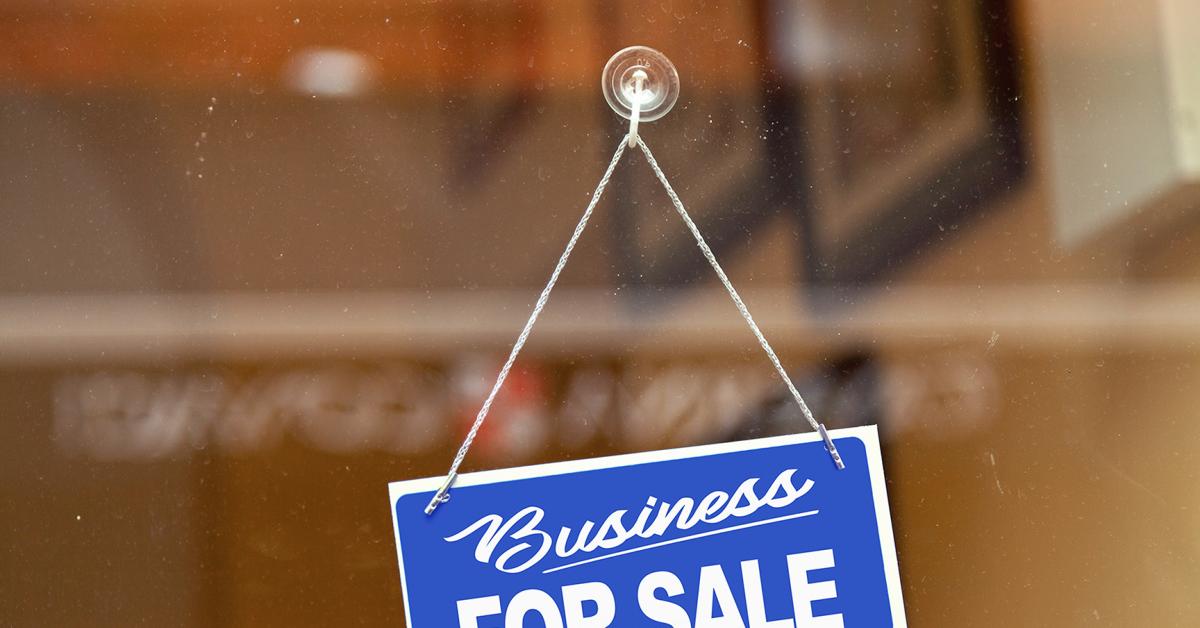CHICAGO — While a business can go on for decades, there comes a time when the owner must step aside as they prepare both the business and themselves for the next stage. Mistakes made during this process, however, can cost the owner thousands of dollars that they’ve earned in building up their company.
In Part 1 of this series, we examined how to determine the actual value of a business, and today, we’ll look at the steps necessary to maintain that value during the sale process.
A Matter of Timing
While there are times when a business owner finds he or she must sell the company — health problems, a death, a divorce or other life event — those who can plan an orderly exit are better off, says Richard Ehrenreich, managing member and principal consultant of Ehrenreich & Associates.
“The best time to make a transition is when things are going great — when you’re spending all your time at the country club. That’s when you should be getting out,” he says. “If you wait until the business has gone to hell in a handbasket, that’s not the time where it’s the most valuable.”
Buyers also look at the reasons why the business is being sold, says Liliane Tietjen, business intermediary at Patriot Business Advisors.
“One of my big questions is, ‘Why are you selling?’ If they’re 65 to 70 years old, that’s fine. But if they’re looking to just flip it, why? What exactly is going on?”
If the buyer doesn’t have a convincing reason to sell, she says, then the potential buyer starts looking for flaws.
That being said, John Mikaelian, owner of AAA Venture Business Brokers, believes that if you do have a good reason — and not that the business is failing — you can decide when to sell based on your own timetable.
“There are people who decide to change and do something different — to go into another industry,” he says. “There’s nothing wrong with that if you’re young — if you’re in your 40s or even 50s — and want to change because you got tired of being in a drycleaning business, that’s OK.”
“You have to look at where you are in life,” Ehrenreich agrees. “What is your health condition, and where does your family need you? And sometimes, you’ve got to sell something when its (value is) high and then buy something else and build that. You can make money if you sell high and buy low.”
When the personal decision is made, external forces are secondary, according to Mikaelian.
“There is no good time or bad time (to sell a drycleaning business),” he says. “Believe it or not, dry cleaning is a needed business — you can’t do without it, for the simple fact that you have to get your clothes cleaned. Granted, there are a lot of people who don’t have to get dressed up for work, but still, many dry cleaners also do laundry, wash rugs and other items to increase income.”
If you are deciding to leave the business rather than being forced to leave, do everything deliberately.
“Give yourself enough time,” Mikaelian says. “The right time is not the time when you make the decision. When you decide to do it, don’t do it that morning. Go through the process and speak with your accountant to make sure that you have the right cash flow. Give it at least a year.”
The Art of Negotiation
In addition to putting a value on the business, it’s important to be able to maintain that value during the negotiation process of the sale.
Since selling a business can be a once-in-a-lifetime experience, most dry cleaners don’t have the expertise to make the best deal for themselves. Finding a professional in business sales — especially one with experience in the drycleaning industry — can be key in making the most out of the transaction.
Mikaelian says he learned this lesson the hard way.
“Prior to being a broker, I was in the drycleaning business, with a 4,000-square-foot plant and three drop-off locations in the early 1970s,” he says. “After deciding to sell, I went to a real estate broker, and man, did he screw the whole thing up. At the time, I was doing close to $500,000 a year, and he told me I couldn’t get more than $175,000 for the business.”
Mikaelian didn’t know there were business brokers at the time, so he went with the real estate broker.
“He found someone who made a deal for $150,000, with $70,000 down,” he says. “That was an outrageous price — it should have been much higher than that — and I kept a note for the remainder. Sellers should not do that without getting a personal financial statement from the person to see where they are financially. A year and a half later, the guy went bankrupt on me. I can’t tell you how difficult that was — that’s what made me become a broker.”
Ehrenreich says there is no substitute for the value of an experienced broker, because they know how to present your business to potential buyers in the best light.
“You’ve got to be able to put your mindset to the buyer rather than yourself,” he says. “And that’s hard to do.”
Having a strategy when building a deal is crucial — and most owners can’t play the game to its fullest.
“You’ve got to get the emotion out of it,” Ehrenreich says. “The first person to move after you’ve started in negotiation is going to be the loser. Sometimes you’ve got to give the person a chance to think about it — to think they might lose this deal. A lot of this stuff is psychological, and you just can’t go in emotionally. You’ve got to be playing your cards.”
Tietjen says she understands the complexities at work and how owners can often volunteer too much information too soon.
“The worst thing in the world is for a seller to sell their own business, because they always say too much,” she says. “Once something is under agreement, then yes, they have to provide everything, and I do that, but saying too much can blow up your deal up front.”
When showing a dry cleaner for sale and making introductions to potential buyers, she tells the owner to answer their questions only when she’s at their side. “And if they’re saying the wrong thing, I redirect the conversation some other way,” Tietjen adds.
Come back Tuesday for the conclusion of this series, when we’ll examine what to do — and what not to do — when preparing to sell. For Part 1, click HERE.
Have a question or comment? E-mail our editor Dave Davis at [email protected].














